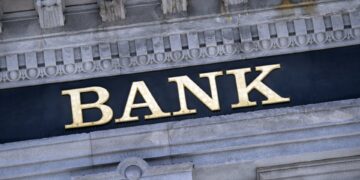Bank of America joined select other big banks who’ve pledged to achieve net-zero greenhouse gas emissions through its financing before 2050.
Some environmental-minded and risk-averse shareholders are increasingly concerned about the systemic impacts of climate change to the economy, including that major banks continue to finance growth in fossil-fuel projects.
Last summer, Bank of America
BAC,
joined the Partnership for Carbon Accounting Financials (PCAF). In collaboration with 15 other financial institutions, Bank of America participated in the development of the Global GHG Accounting and Reporting Standard for the Financial Industry, which is intended to provide a consistent methodology to assess and disclose emissions associated with financing activities. Bank of America is committed to disclosing its financed emissions no later than 2023.
“We recognize that this will be no easy task, but we believe our commitment will help spur the growth of zero carbon energy and power solutions, sustainable transportation and agriculture, and other sector transformations, while generating more climate resilient and equitable opportunities for our future,” said Bank of America vice chairman Anne Finucane. She leads the company’s environmental, social and governance, sustainable finance, capital deployment and public policy efforts.
Bank of America joins Morgan Stanley and JPMorgan Chase as the largest U.S. banks who say they are committed to achieving net-zero-financed emissions.
Shareholder advocate As You Sow, joined by several investors including Mercy Investment Services, Arjuna Capital, Boston Trust Walden, Presbyterian Church USA, and Boston Common Asset Management, among others has filed climate-focused resolutions with a large segment of the U.S. banking industry, including JPMorgan Chase
JPM,
Wells Fargo
WFC,
Bank of America, Goldman Sachs
GS,
and Citigroup
GS,
asking banks to immediately take tangible steps to measure, disclose and, importantly, to reduce the greenhouse gas emissions associated with their financing activities, including in particular their financing of fossil fuels.
In 2020, As You Sow and Arjuna Capital filed a shareholder proposal with Bank of America asking if and how it would align it’s financing with the Paris Agreement’s 1.5 degree goal.
“After a constructive engagement, followed by Bank of America’s commitment, As You Sow has withdrawn its proposal,” the advocacy group said in a release. “As the fourth largest global financier of fossil fuels, Bank of American’s leadership is significant, signaling that it will transition its financing activities in line with global climate goals.”
Bank of America’s research arm earlier this week issued a report declaring climate change as this decade’s most important theme, similar to the way technology underpinned economic growth during the past decade. Major powers will fight to lead, the report said. China has spent twice as much as the U.S. on climate action, said Haim Israel, the bank’s head of global thematic investing research.
“We believe climate strategies offer a route to global supremacy,” he said. “Whether through regulation, limits on exports, tariffs or significant investments, we believe the U.S. and China will do whatever it takes to take the lead on climate action.”
The economic impact of climate change could reach $69 trillion this century, and investments in the energy transition need to increase to $4 trillion a year, Israel said. That will lead to more than $100 billion a year in research and development.
Bank of America estimates that the potential market capitalization for companies tackling the global warming issue to be about $6 trillion across sectors including renewables, electric vehicles, and environmental, social and governance. So far, China dominates EVs and batteries, while Europe excels in renewables.








